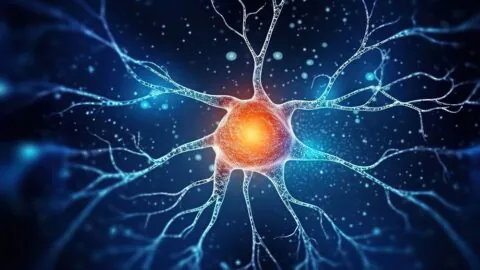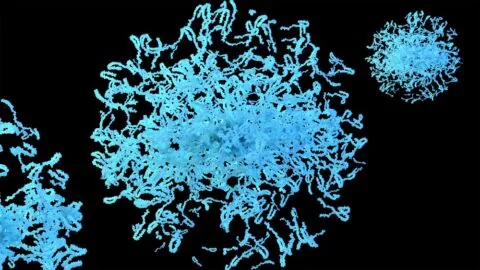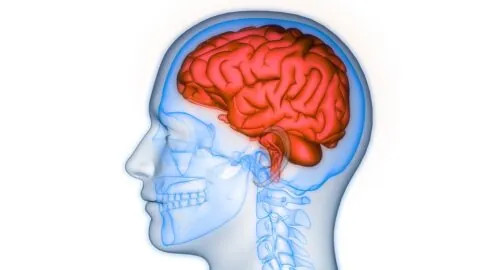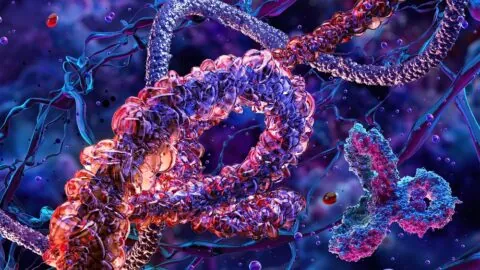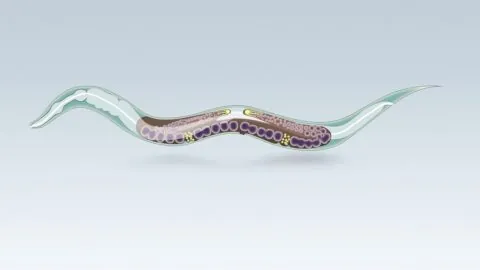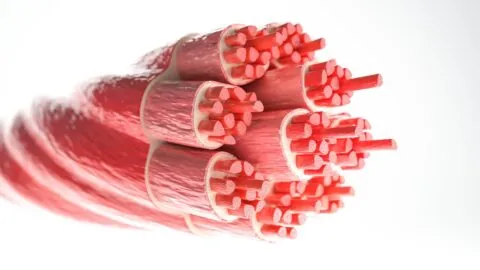February 23, 2026
In Aging Cell, researchers have explained how the sirtuin SIRT6 protects against proteostasis-related brain disorders by maintaining the function of nucleoli and limiting protein production. The nucleus and nucleoli Loss of ProteostasisThe loss of proteostasis is the failure of the protein-building machinery of the cell and the accumulation of misfolded proteins, which is one of...
September 05, 2025
Scientists have found a pathway that regulates protein aggregation, a cause of several age-related neurodegenerative diseases. United by abnormal protein aggregation Most neurodegenerative diseases are age-related, and many of them are similar in other ways. For instance, amyotrophic lateral sclerosis (ALS), Huntington’s disease, and Alzheimer’s disease have all been linked to abnormal protein aggregation [1],...
July 31, 2025
Researchers publishing in Nature Aging have discovered how Alzheimer's-related protein aggregates are also related to senescent cells and osteoporosis. Beyond the brain Loss of ProteostasisThe loss of proteostasis is the failure of the protein-building machinery of the cell and the accumulation of misfolded proteins, which is one of the root causes of age-related diseases, including...
May 05, 2025
In Aging Cell, researchers have explored how transcription factor EB (TFEB) promotes proteostasis in a common aging model. Maintaining protein function Loss of ProteostasisThe loss of proteostasis is the failure of the protein-building machinery of the cell and the accumulation of misfolded proteins, which is one of the root causes of age-related diseases, including Alzheimer's...
July 28, 2024
Research published in Aging Cell has revealed that a nematode species commonly used for aging research lives much longer on an alternate-day fasting regimen, but only when it is administered in middle age and only when the worms are consuming an animal-based protein source. Deciding what to restrict and when Dietary restriction practices have been...
April 22, 2024
With an in-depth examination tool in hand, researchers publishing in Aging have done a preliminary examination of the muscle protein differences between younger and older people and how older people's proteins change with exercise. The power to take a close look This paper begins with a discussion of proteomics, the science of analyzing what proteins...

